
This book deals with one the most interesting aspects of human life - the search for meaning. It discusses how the science of semiotics is equipped to provide insight on what meaning is and how we produce it. Why is it that certain people routinely put their survival at risk by smoking? Why is it that some women make locomotion difficult for themse...

This book is exceptional in the sense that it provides an introduction to law in general rather than the law of one specific jurisdiction, and it presents a unique way of looking at legal education. It is crucial for lawyers to be aware of the different ways in which societal problems can be solved and to be able to discuss the advantages and disad...
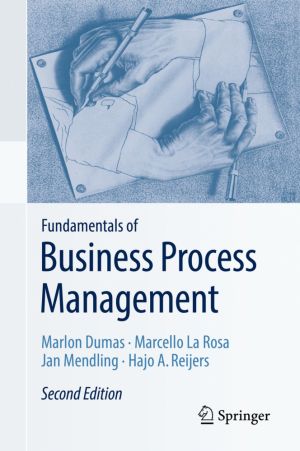
This book covers the entire Business Process Management (BPM) lifecycle, from process identification to process monitoring, covering along the way process modelling, analysis, redesign and automation. Concepts, methods and tools from business management, computer science and industrial engineering are blended into one comprehensive and inter-discip...
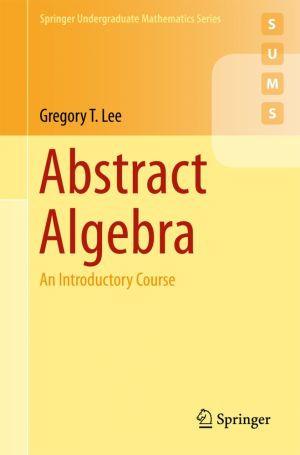
This carefully written textbook offers a thorough introduction to abstract algebra, covering the fundamentals of groups, rings and fields. The first two chapters present preliminary topics such as properties of the integers and equivalence relations. The author then explores the first major algebraic structure, the group, progressing as far as the ...

In the decade and a half since Napster first emerged, forever changing the face of digital culture, the claim that "internet pirates killed the music industry" has become so ubiquitous that it is treated as common knowledge. Piracy is a scourge on legitimate businesses and hard-working artists, we are told, a "cybercrime" simila...
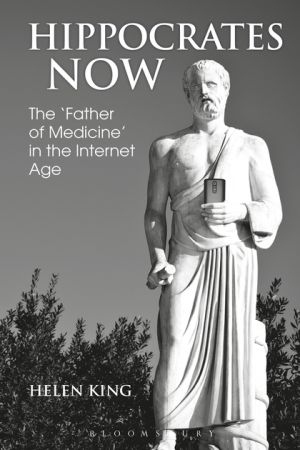
This book will challenge widespread assumptions about Hippocrates (and, in the process, about the history of medicine in ancient Greece and beyond) and will also explore the creation of modern myths about the ancient world. Why do we continue to use Hippocrates, and how are new myths constructed around his name? How do news stories and the internet...
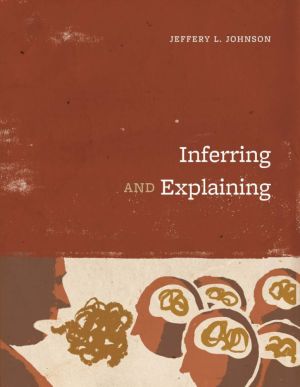
Inferring and Explaining is a book in practical epistemology. It examines the notion of evidence and assumes that good evidence is the essence of rational thinking. Evidence is the cornerstone of the natural, social, and behavioral sciences. But it is equally central to almost all academic pursuits and, perhaps most importantly, to the basic need t...
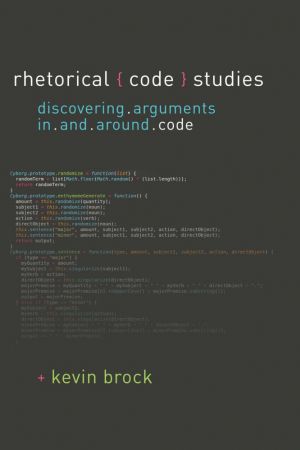
Software developers work rhetorically to make meaning through the code they write. In some ways, writing code is like any other form of communication; in others, it proves to be new, exciting, and unique. In Rhetorical Code Studies, Kevin Brock explores how software code serves as meaningful communication through which software developers construct...
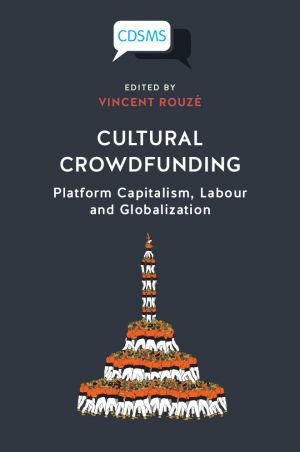
This new book analyses the strategies, usages and wider implications of crowdsourcing and crowdfunding platforms in the culture and communication industries that are reshaping economic, organizational and social logics. Platforms are the object of considerable hype with a growing global presence. Relying on individual contributions coordinated by s...
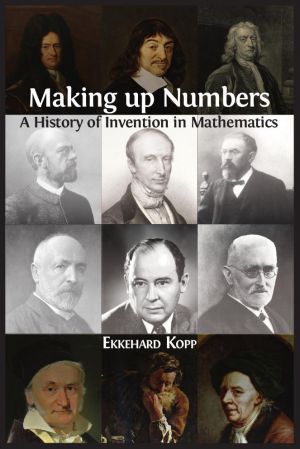
Making up Numbers: A History of Invention in Mathematics offers a detailed but accessible account of a wide range of mathematical ideas. Starting with elementary concepts, it leads the reader towards aspects of current mathematical research.
The book explains how conceptual hurdles in the development of numbers and number systems were overcome i...

This first open access book in a series of three volumes provides an in-depth analysis of social protection policies that EU Member States make accessible to resident nationals, non-resident nationals and non-national residents. In doing so, it discusses different scenarios in which the interplay between nationality and residence could lead to ineq...

From 1928 to 1972, the Alberta Sexual Sterilization Act, Canada's lengthiest eugenic policy, shaped social discourses and medical practice in the province. Sterilization programs - particularly involuntary sterilization programs - were responding both nationally and internationally to social anxieties produced by the perceived connection betwe...

During the Cold War, American labour organizations were at the centre of the battle for the hearts and minds of working people. At a time when trade unions were a substantial force in both American and European politics, the fiercely anti-communist American Federation of Labor - Congress of Industrial Organizations (AFL - CIO), set a strong example...
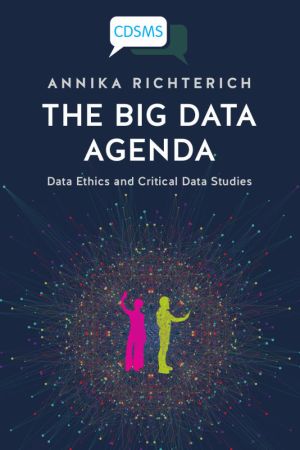
This book highlights that the capacity for gathering, analysing, and utilising vast amounts of digital (user) data raises significant ethical issues. Annika Richterich provides a systematic contemporary overview of the field of critical data studies that reflects on practices of digital data collection and analysis. The book assesses in detail one ...

In 2007, 144 UN member states voted to adopt a Declaration on the Rights of Indigenous Peoples. Australia, Canada, New Zealand and the US were the only members to vote against it. Each eventually changed its position. This book explains why and examines what the Declaration could mean for sovereignty, citizenship and democracy in liberal societies ...

This open book is about exploring interesting borderline cases of art. It discusses the cases of gustatory and olfactory artworks (focusing on food), proprioceptive artworks (dance, martial arts, and rock climbing qua proprioceptive experiences), intellectual artworks (philosophical and scientific theories), as well as the vague limits between pain...

This open book provides a concise introduction to economic approaches and mathematical methods for the study of water allocation and distribution problems. Written in an accessible and straightforward style, it discusses and analyzes central issues in integrated water resource management, water tariffs, water markets, and transboundary water manage...
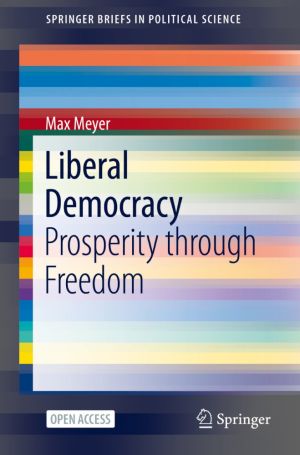
This open book aims to show which factors have been decisive in the rise of successful countries. Never before have so many people been so well off. However, prosperity is not a law of nature; it has to be worked for. A liberal economy stands at the forefront of this success - not as a political system, but as a set of economic rules promoting comp...

This open book aims to clarify the term „evidence-based medicine" (EBM) from a philosophy of science perspective. The author, Marie-Caroline Schulte discusses the importance of evi-dence in medical research and practice with a focus on the ethical and methodological prob-lems of EBM. The claims that EBM can herald a new theory of epistemolog...

This open book examines the multiple intersections between national and international courts in the field of investment protection, and suggests possible modes for regulating future jurisdictional interactions between domestic courts and international tribunals. The current system of foreign investment protection consists of more than 3,000 interna...

Through fifteen essays that work from a rich array of primary sources, this collection makes the novel claim that early modern European women, like men, had a youth. European culture recognised that, between childhood and full adulthood, early modern women experienced distinctive physiological, social, and psychological transformations. Drawing on ...

The issue "Mathematical Logic and Its Applications 2020" contains articles related to the following three directions:
I. Descriptive Set Theory (3 articles). Solutions for long-standing problems, including those of A. Tarski and H. Friedman, are presented.
II. Exact combinatorial optimization algorithms, in which the complexity rela...

Drawing on Indigenous peoples' struggles against settler colonialism, Theft Is Property! reconstructs the concept of dispossession as a means of explaining how shifting configurations of law, property, race, and rights have functioned as modes of governance, both historically and in the present. Through close analysis of arguments by Indigenou...

Introduction to Financial Mathematics: Concepts and Computational Methods serves as a primer in financial mathematics with a focus on conceptual understanding of models and problem solving. It includes the mathematical background needed for risk management, such as probability theory, optimization, and the like. The goal of the book is to expose th...
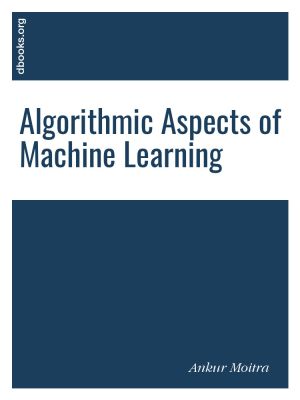
This course is organized around algorithmic issues that arise in machine learning. Modern machine learning systems are often built on top of algorithms that do not have provable guarantees, and it is the subject of debate when and why they work. In this class, we focus on designing algorithms whose performance we can rigorously analyze for fundamen...

What does it mean to be a scientist working today; specifically, a scientist whose subject matter is human life? Scientists often overstate their claim to certainty, sorting the world into categorical distinctions that obstruct rather than clarify its complexities. In this book Daniel Nettle urges the reader to unpick such distinctions - biological...
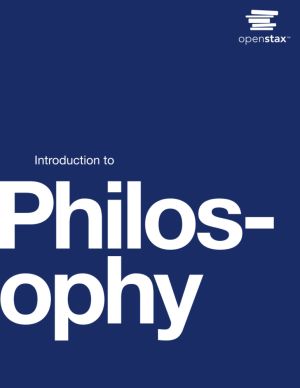
Introduction to Philosophy provides an overview of a common range of philosophical topics for a first- or second-year general education philosophy course. It is organized thematically, following the principal categories of academic philosophy (logic, metaphysics, epistemology, theories of value, and history of philosophy). A recurring theme of Intr...

Rules and Laws for Civil Actions is an open-access resource for law students containing the U.S. Constitution, Federal Rules of Civil Procedure, Federal Rules of Evidence, Federal Rules of Appellate Procedure, and selected federal and state statutes. The book was created by a team of faculty members at the University of Iowa College of Law to suppl...
